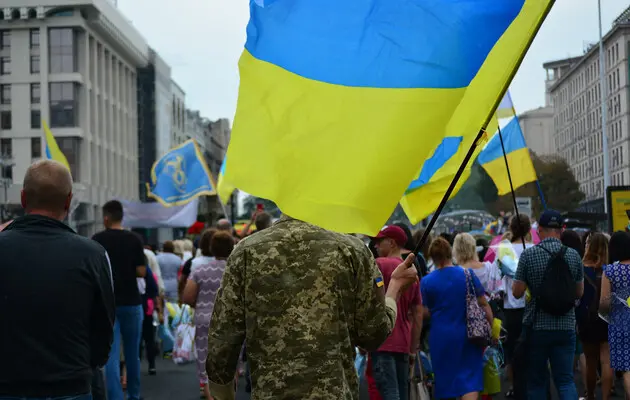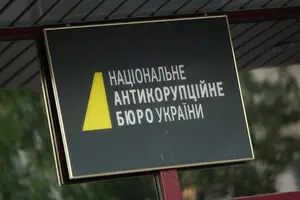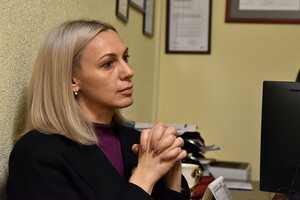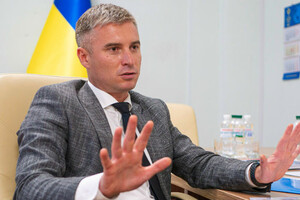How Can Civil Society Take Power in the Country?
The power in Ukraine tentatively belongs to the people.
Three Maidans, 10 years of war, a kaleidoscope of presidents — all this is not enough to bring us to the world of modern states after 33 years of “wandering in the desert.”
De facto, the power in Ukraine, just like 33 years ago, belongs to those who “hacked democracy” and those who blindly follow them.
That is, corrupt officials, bandits, populists and ignorant people.
Having united with bandits, Komsomol members have preserved the corrupt and security branch of the state, while populists balance between them, bureaucrats (the armor of a fragile state that prevents any changes) and a narrow stratum of liberals. The latter emphasize reform sectors that do not affect the foundations of the corrupt state and rather serve to ensure that neither civil society nor international partners have enough arguments to change the political power.
And it seems that the corrupt and security part of the state has won.
Disillusioned society no longer expects anything good from the upcoming elections. We have a progressive social degradation: ignorance, the desire of young people to leave Ukraine, a sense of lack of bright prospects and a reduction in life expectancy.
From time to time, leaders of various social groups meet and look disappointedly at the blank sheets with the list of civil society representatives who can actually win the upcoming elections.
And our international partners, even if they do not talk about the failed state publicly, no longer expect us to grow up quickly.
Yes, democracy. Yes, incredible resilience. Yes, freedom of speech. Even under such circumstances, the fight against corruption and the implementation of structural beacons in various programs. However, from customs to armed barons, from Energoatom to the Presidential Office, there is a prevalent feeling that everything needs to be built from scratch.
It is no coincidence that for 10 years now we have been discussing the need to re-found the state, starting with the Constitution and ending with the construction of fundamentally new, compact and inclusive institutions.
What happens if we do not reassemble?
What if... If business does not start funding think tanks and political movements? If public associations don't learn to defend a common position — and, above all, to agree on it? If we don't start working on communication: channels, meanings, civic education? If patriotic, intelligent, successful people don't start preparing to take up public service and politics as part of strong, coordinated and motivated teams? If successful mayors don't learn to think nationally? If young people do not see a future for themselves in Ukraine?
In this case, Russia will win. Even if it does not seize our lands. Even if we do not buy Russian gas and do not watch Russian entertaining content.
We will lose our victory if we fail to modernize Ukraine.
We change the government after Maidan, and it becomes the same as the previous one. Why? Perhaps because it is us? The realization of this after a conversation with a wise man makes me repeat once again: either we change ourselves as citizens and as a society, or the homegrown Putins and Yanukovychs will destroy Ukraine.
I will write again to make my position clear. The inertial scenario for Ukraine is an embarrassment (we would be completely scr...).
It is a territory of resources (land, water, minerals) for resourceful neighbors. It is a territory of barbarians between two civilizations.
If we, civil society, do not learn not to disperse after victories (on Maidans, in elections, in war), we will “wander in the desert,” returning to Maidans and wars again and again. If we do not learn to retain our agency after our victories, our victories will be used by the gangsters and security services that are part of the state. All that quality of powers that be, albeit with different faces, will reproduce itself.
We have not had hundreds of years of uninterrupted statehood, we have few professional state managers and no real political elites.
Ivan Franko and Andrii Sheptytskyi, Serhii Zhadan and Yevhen Hlibovytskyi are outstanding personalities at all times. But century after century, no real political elite has been formed. The “vision” is shaped and implemented by the mother country. And our meaning comes down to “just leave us alone.”
In an inertial scenario, our degradation is about human resources (which can no longer be called capital) that steals at all levels, understands only force and begs, living on government handouts. These are local barons who replace justice. This is the ossified power that fuels the paternalism of society and exchanges freedom of speech for the right of everyone to steal a little (a little in taxes, a little in other things).
But we can break the inertial scenario.
What should we do? What kind of country should we build, who are we, and how will we succeed?
For those who like to destroy the aspirations of others to make real breakthroughs through metaphors about “pink ponies,” I suggest that you allow yourself to dream constructively for half an hour. I have been lucky enough to make breakthroughs several times in my life when others skeptically called me a dreamer. For example, in 1991, I was the first in Ukraine to sell software and actually formed the software market (by the way, it was a program for checking Ukrainian texts, which was not yet in demand). And in 1994, I sold my developments to Apple. We were the first in Ukraine to start transferring software from platform to platform for the whole world. We managed to launch Prozorro and land reform. And there are dozens of such teams in Ukraine. The problem is rather in our despondency and in the fact that the vast majority of talents are realized outside the country.
If we summarize the vision of Ukraine in four short points, here it is:
- A country of opportunities — creation, innovation, development, entrepreneurship; with global agency, developed human capital, entrepreneurial and innovative culture.
- A human-centered state — a service state, with inclusive institutions and a level playing field; one that takes care of those who cannot take care of themselves and guarantees opportunities for others.
- A safe environment of protected rights and freedoms.
- Responsible citizens — responsible for their own development, well-being, education and family health.
Such a Ukraine is worth returning to, investing in, having children in, and attracting talent and innovators from around the world.
Such a country will have large-scale projects. Large-scale projects of consequence to the whole world.
Ukraine will export security, be a center for the formation of a new global security architecture and a center for countering cyberwarfare. Control over AI weapons — more complex but more reliable than control over nuclear proliferation — will be born in Ukraine. So will technologies and means of remote warfare: robot-based defense industry, UAVs, etc.
A center for new green energy, including the transformation of Ukraine into an EU energy security zone.
We are losing territories for traditional agriculture. Accordingly, our path is new agricultural technologies and a fundamentally new foodtech: new food, from “human fodder” based on new proteins to food with programmable properties (food coloring, 4D food printing technologies, etc.). A food security partner for Saudi Arabia, Qatar and the UAE.
A logistics and production center for Asian countries in their focus on the EU market. A joint strategic vector of supplies to Africa with EU partners.
Rocket production. Not only ballistic missiles that will destroy enemy infrastructure, but also a return to space with commercial light and medium rockets.
New economy. Ukraine will become a platform for economic experiments with virtual assets and new business models: everything as a service (EaaS), freemium (F2...), a new level of partnerships (clustering, D4C, HwH, etc.).
What we can do cool at the small business level (coffee shops, craft products, personal and professional services) and in IT, with appropriate strategies, can become the subject of global competitiveness.
Our entrepreneurship and adaptability are a significant competitive advantage in the New World.
And this is what gives us reason to finally stop catching up and start shaping a new reality.
Gamification, mass personalization and building horizontal connections — the things we already know how to do — are starting to be in demand in the global economy, business, politics and community building.
But someone has to become the agent of creating a new Ukraine.
In fact, civil society asserted itself as an agent in its position on the modernization of Ukraine during the Maidan in 2013 / 2014. But in 2014 and 2019, the achievements, aspirations and activism of society were utilized by politicians and their political strategists.
Under the current inertial scenarios, the same thing will happen in the spring / fall of 2025 (or whenever the next elections are held).
A soothing fan of quasi-veteran-volunteer parties, weak medium-sized businesses, atomized anti-corruption movements, young people abroad, voting for sweet promises — and then “suddenly” the parties Action, Dream, Army+, “Ze bloc” and others form a coalition led by a mono-minority.
And this is the best scenario compared to the one drawn by the dynamics of the current opinion polls showing disappointment and social degradation.
But the incredible miracle of Ukraine is that we manage to avoid the worst scenarios. The horizontality of society, the desire for freedom and self-activation make it impossible to lose to the past.
But they also do not guarantee a victory for the future either.
For this victory, we need an agent. This agent is none other than civil society itself.
Many of my colleagues do not believe in this, pointing out that more than 60,000 Ukrainian NGOs are unable to unite, are atomized, have long since turned into "grant-eaters," weak, infantile, do not understand the intricacies of public administration, etc. That "Viber chats of residential buildings" is a reflection of our inability (Viber is a messaging platform popular in Ukraine).
But if you look at civil society not through the prism of its institutions (NGOs), but through the concepts of "vision" and "action," then the perception can change.
We have already managed to agree twice on the common vision of Ukraine — 2014 and 2023.
They managed to find mechanisms for making joint decisions — not in the "smartest" format, but in the Delphi format, when arguments are important, not the history of those who make them.
This is how the joint Lugano Declaration Manifesto, the Coalition of Business Communities for the Modernization of Ukraine with a unified understanding of economic policies, the Alliance of Leading Analytical Centers with a mechanism for coordinating economic reforms, and the Coalition of Veterans Organizations saw the light of day.
Therefore, civil society learns to negotiate and cooperate; therefore, it will definitely become more capable.
Of course, they will try to pit its members against one another.
The Presidential Office has already shown such an approach by creating the Council for the Support of Entrepreneurship under the President of Ukraine, neglecting the current institutionalization of the business environment: the Business Ombudsman Institute, the Coalition of Business Communities for the Modernization of Ukraine (which is 98 business communities, such as the CEO Club, SUP, TPP, Board), the Federation of Employers of Ukraine, the Ukrainian Business Council, the American Chamber of Commerce, European Business Association.
But these attempts to weaken the business have not worked so far. Despite all this, business communities did not allow the adoption of the regressive draft law on Bureau of Economic Security, do not agree to other anti-reforms that the government is trying to legitimize through the Verkhovna Rada (toward whose members, by the way, entrepreneurs have a positive attitude on a personal level, but it is about creating inclusive institutions, not about convenience for the president’s managers).
So what needs to be done so that it becomes unimportant for civil society who the current president is, who formed a coalition in the Verkhovna Rada, and who is appointed prime minister? So that any government in the country realizes the interests of the proactive, progressive and patriotic part of society?
So that in a safe global Ukraine, the human-centered state cares for, promotes and cooperates with responsible citizens?
Joint action plan — 12 points
Agency building
- International representation. Formation of horizontal ties with international organizations, think tanks, business communities. Forging ties with international partners at the level of national and international institutions.
- Implementation of protest actions — not turning a blind eye to the actions and decisions of the authorities that are contrary to the interests of civil society, not condoning violations of social red lines. Not being silent, not being afraid, not postponing the protest until "better days."
- Formation of coalitions and coordination of positions between coalitions: business, veterans, communities, anti-corruption public associations, media, think tanks, volunteers, professional communities, etc.
- Protection of civic activists, journalists and entrepreneurs from risks — deployment of a unified system of rapid response, physical and reputational protection.
Influence on the authorities
- Deployment of media platforms. In conditions of limited resources, the construction of a network of channels for checking and disseminating information. Funding of independent media — so that they remain independent.
- Implementation of systemic projects such as Vision of Ukraine 2035, new national economic strategy, liberal tax reform, administrative reform, human capital development strategy, etc. inclusively, in constructive interaction with the president, the government and the Verkhovna Rada.
- Formation of a civic government. Not in the "shadow government" format that opposition political forces can create, but in the format of a platform of think tanks capable of analyzing the current situation, formulating and coordinating state policies and monitoring their implementation by the current government.
- Facilitating the formation of a genuine coalition in the Verkhovna Rada. Having 240 patriotic and progressive MPs, who are able to negotiate and are no longer ready to be a tool in the games of the president’s "effective managers," facilitating the formation of a parliamentary coalition that would include various factions. In fact, it would unite for the sake of forming not a "patchwork" Cabinet, but a professional Government of national rescue and modernization. At the first step, it is enough to have the support of 100 deputies who will volunteer to start the process of forming a coalition.
Assuming power
- Association of regional civic organizations. Preventing the next wave of wasting public energy through oligarchic projects, reincarnation of discredited political projects or projects of local barons. This requires interregional coordination and implementation of the next point.
- Introduction of the institute of primaries. In particular, the introduction of trust amnesty in conditions of social atomization and the competition of projects to replace the priority of media popularity.
- Intellectual, organizational and human-resource assistance in the formation of new political parties. Support for the parties that agree to base their programs on the vision and public policies developed by civil society. To implement the plan, ensure the consolidation of business financial resources (network of funds).
- Mediation in the creation of coalitions among political parties. Taking into account the future landscape of elections, ensuring the entry to the Verkhovna Rada of a wide range of political forces capable of fulfilling pre-election promises and forming a coalition for the modernization of Ukraine (vision).
The full implementation of the plan is unlikely due to the lack of leadership in civil society. However, even a chaotic set of correct actions brings us closer to the moment when civil society will become the real customer of politics in Ukraine.
We do what we have, and the progressive "black swan" will appear in the already heated political lake.
We have nothing more to lose. Ukraine should become The Next Big Thing for the world. A guide to the New World, no matter how ambitious it may sound. This is the only strategic winning alternative for us.
Please select it with the mouse and press Ctrl+Enter or Submit a bug


















 Login with Google
Login with Google